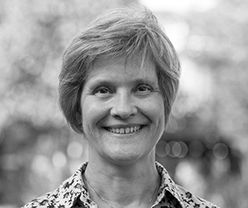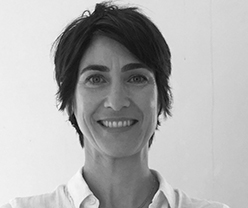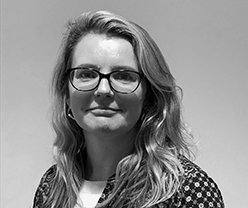27 January - Session 2: Integrated & Inclusive Urban Planning
Summary
Integrated urban planning delivers strategic outcomes that create lasting improvements in the social, economic, and environmental conditions of a city or area. It recognises strengths and vulnerabilities, builds resilience, and balances short, medium, and long-term objectives. It comprises a series of interlinked policies, plans, programmes, or projects that can positively affect each other to achieve balanced outcomes. Integrated urban planning will help allocate land for urban activities and better direct the use of funds by both public and private sector stakeholders. Effective integrated planning works at all scales (ie national, regional, district and local) and needs to be inclusive (ie it should address the needs of all stakeholder groups, including vulnerable and marginalised groups and communities). To achieve this, it will typically include provision for a range of consultative and/or participatory planning activities.
Drawing on examples from the Bristol One City Plan, this session considers the importance of integrated and inclusive planning as a prerequisite for achieving lasting social, economic, and environmental improvement while simultaneously addressing the needs of the marginalised and the vulnerable. The session was facilitated by the Design Council together with University College London Development Planning Unit.
Key Takeaways:
- Building consensus is the key to long term planning. Reach out, maintain regular contact to build trust with honesty & transparency. Listen to each group and then enable them to hear each other. Focus on the benefits.
- Don’t walk away from conflict. Use evidence to help explain impact and consider trade-offs.
- Participatory budgeting encourages people to hear each other and agree priorities, helps create understanding about the way in which projects relate to the larger scale/longer term.
Principal Contributors

Mr Tom Perry, Head of Cities, Design Council
Head of Cities Programme at Design Council I oversee the work of our Advisors to manage the delivery of our design advice programme. I ensure the quality of our delivery for a wide range of clients and help the organisation to provide critical insight into development issues for Local Authorities and National Advice Panels. I have 15 years of professional experience both in the UK and internationally delivering a range of projects from new city plans to individual community buildings. Working for national and local governments, developers, and communities, I have developed participatory design processes to support urban regeneration and neighbourhood planning whilst building capacity across communities and the built environment professions in Europe, Asia, Africa and Central and South America. I’m an Urban Planner by training holding Masters in both Landscape and Town Planning.

Ms Jane Dann, Built Environment Expert, Design Council
Jane is an urban designer, architect, and chartered town planner. She is founding director of Tibbalds Planning and Urban Design and currently Managing Director. She has 30 years’ experience in urban design practice, mainly in consultancy. Her focus is on the interface between design and planning and securing quality through the planning process at various scales, from strategic to detailed design. Her interests include the distinctive character of different places, particularly historic environments. Jane’s specialist expertise includes design policy, design guidance and design coding, having recently worked with MHCLG to prepare the National Design Guide (2019). She also led a two-year research programme that shaped government policy and jointly authored Preparing Design Coding - A Practice Manual (2006). Skilled at steering and strategies for complex projects with a multi-headed client group, challenging circumstances, or ill-defined brief, she has acted as masterplan advisor to deliver a broad range of proposals.

Dr Barbara Lipietz, Associate Professor, UCL Bartlett, Development Planning Unit
Dr. Barbara Lipietz is Associate Professor at The Bartlett Development Planning Unit (DPU), University College London where she leads DPU's MSc in Urban Development Planning and convenes the research cluster on Urban Transformations. Barbara has over 20 years of research and policy experience in the fields of urban (participatory) governance and planning, city visioning, regeneration and housing, especially in the contexts of urban Africa, Asia and London. In those contexts, she has worked with organisations at a variety of scales, from international (e.g. UN-Habitat, UNDRR, UNEP, UCLG, Habitat International Coalition and the Global Platform for the Right to the City, as well as international community-led networks such as the Asian Coalition of Housing Rights), to national (e.g. Arkom Indonesia, CCI Tanzania), to the local scale (e.g. the London-based Just Space network, Planact in Johannesburg). Barbara’s current research focuses on the manifestations and contestations of ‘displaceability’ in diverse urban and peri-urban settings; the exploration of co-production processes towards the ‘just’ city, including modalities of recognition, such as counter-mapping and theatre/spoken word. Barbara is co-chair of UCL’s Grand Challenges on Sustainable Cities and is part of the editors collective for the journal ‘City’.

Dr Catalina Ortiz, Associate Professor, UCL Bartlett, Development Planning Unit
Catalina Ortiz holds a PhD in Urban Planning and Policy from the University of Illinois at Chicago. She is an Associate Professor in the Bartlett Development Planning Unit, University College London. Her research includes the negotiated co-production of space in global south cities around urban design, strategic spatial planning, and urban policy mobility practices.

Ms Nuala Gallagher, Director of Growth, Investment & Infrastructure, Bristol City Council
Nuala has been working in urban development internationally for over 20 years; she took up the role as Director for Economy of Place with Bristol City Council in July 2018. Preceding that she was Director of City Centre Development with Belfast City Council where she established a new Regeneration and Development Department for the city. Prior to that she was Head of Regeneration with the London Borough of Newham; leading one of the largest regeneration projects in Europe; ranging from post-Olympic projects in Stratford to Canning Town and the Royal Docks. She has worked in New York City in both private and non-profit sector, leading on sustainable urban development as well as teaching at Columbia University’s Graduate School of Architecture, Planning and Preservation. A registered architect and urban designer, earlier work included housing in local government in Ireland, community projects in India and an architect in the private sector.
Learning outcomes
By the end of the session, participants were:
- able to explain the importance of integrated and inclusive planning as a contributor to sustainable development and the SDGs
- able to explain the key components of integrated and inclusive planning
- better equipped to critically reflect on existing planning practices in their own city
- able to reflect on the way in which their projects contribute to integrated and inclusive planning
Participants were reminded of the importance of integrated planning and the way it can be used to achieve balanced outcomes against social, environmental and economic dimensions, together with the way in which it serves to identify and capture synergies, link and align strategies, policies, plans, programmes and projects, balancing short-, medium- and long-term objectives
Links to further information
- International Growth Centre: Assessment Framework for measuring economic success in transport, land-use planning and resilience interventions
- International Growth Centre: Urban land use planning for economic growth
- International Growth Centre: Urban planning for productive and liveable cities
- International Growth Centre: Key considerations for integrated multi-modal transport planning
- Design Council: Making Life Better by Design
- Sage Journals: Participatory Budgeting
- Democracia Participativa: Participatory Budgeting
- UCL Bartlett DPU: Social Impact Assessment in London Planning
- Just Space: Towards a community-Led Plan for London
- Case Study of Collective Housing in Asian Cities: Mae Myit Thar
- Shack/Slum Dwellers International: Know your City, Know your Settlement
- South African Property Owners Association: Inclusionary Housing